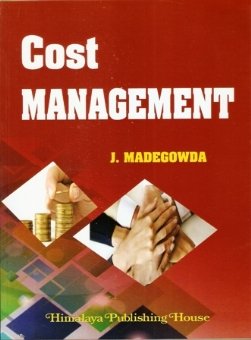Cost Management
no information available
Due to unprecedented developments in the economies world over, Cost Management is receiving greater attention of both the corporate world and the academic institutions. This has encouraged the academic institutions to introduce a course on Cost Management in their programmes of study such as M.Com, ICWA, CA, etc. However, available literature on this subject is very inadequate. The book covers ten important techniques of Cost Management, Initially, the book introduces, in the first chapter, Cost Accounting and different related aspects such as cost concepts, classification of costs, methods, systems and techniques of Cost Accounting followed by the emergence of Cost Management, tools and techniques of Cost Accounting. A Comprehensive analysis of Activity-Based Costing is made in the second chapter which begins with the methodology of overhead accounting under conventional Costing and identification of its limitations followed by different aspects of Activity-Based Costing. Third chapter discusses both Product Life Cycle Costing and Project Life Costing. Need for and importance of Target Costing followed by methodology is discussed in detail in the fourth chapter. The fifth chapter discusses the Learning Curve Theory. Preparation of income statement under three different Costing approaches with a detailed study under Throughput Costing is made in the sixth chapter. The next two chapters (VII and VIII) discuss pricing strategies, methods, etc., and Transfer Pricing. The last chapter discusses three important cost management techniques viz., Just-in-Time Policy, Quality Costs (TQM) and Balanced Scorecard. This book is prepared systematically keeping in mind two important aspects viz., the theoretical framework and the practical application. The book lays emphasis on the comprehensive analysis of each and every concept supported well by the relevant examples / illustration. It views the concepts, tools techniques, etc., from the point of view of practical relevance. A number of relevant problems are discussed systematically. And these illustrations and the problems given at the end of the chapters under the head, Questions for Self Study are extracted from the questions papers of different programmes of study such as M.Com, ICWA, CA, etc., of professional institutes and of some universities. Contents : 1. Introduction - Cost Ascertainment to Cost Management 2. Activity-based costing 3. Life Cycle costing 4. Target Costing 5. Learning Curve Theory 6. Throughput Costing 7. Pricing - Strategies, Policies and Methods 8. Transfer Pricing 9. JIT, Quality Costs and BSC ... Read more Read less











